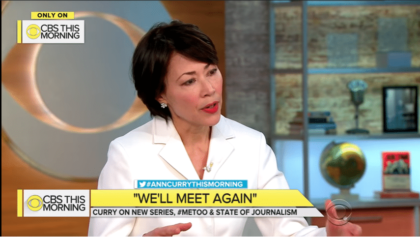Months after being embroiled in a massive sexual assault scandal, Boy Scouts of America is on the verge of announcing that it will allow gay Boy Scouts and troop leaders, according to published reports.
The change could come as early as next week if it is approved by the national board. It would be a big shift in the Scouts’ decades-old policy of banning gays — although many local troops ignore the policy and admit gay members anyway.
“The policy change under discussion would allow the religious, civic or educational organizations that oversee and deliver Scouting to determine how to address this issue,” BSA spokesman Deron Smith said in a statement to USA TODAY.
The statement comes just seven months after the Boy Scouts created a media firestorm by affirming its ban on gays after a nearly two-year examination of the issue by a committee of volunteers convened by its national leaders.
But there was pressure from inside, as members of the national board such CEOs Randall Stephenson of AT&T and James Turley of Ernst & Young, in addition to many local chapter leaders, loudly called on the organization to reconsider the ban.
Under the proposal, the decisions on membership and leadership would be left up to the BSA’s 290 local governing councils and 116,000 sponsoring religious and civic groups.
“Scouting has always been in an ongoing dialogue with the Scouting family to determine what is in the best interest of the organization and the young people we serve,” Smith told USA TODAY.
“The Boy Scouts would not, under any circumstances, dictate a position to units, members or parents. Under this proposed policy, the BSA would not require any chartered organization to act in ways inconsistent with that organization’s mission, principles or religious beliefs,” he said.
The policy changes comes just months after the Los Angeles Times reported that the Boy Scouts may have been tacitly complicit in the sexual assaults of hundreds of boys, by failing to report the predators to police and hiding the allegations from parents and the public.
The Los Angeles Times study of 1,600 confidential files dating from 1970 to 1991 found that Scouting officials often urged admitted offenders to quietly resign and helped many of them to cover their tracks.
Volunteers and employees suspected of abuse were allowed to cite bogus reasons for their departures such as business demands, “chronic brain dysfunction” and even duties at a Shakespeare festival.
The newspaper discovered the details in the organization’s confidential “perversion files,” a blacklist of alleged molesters that the Scouts have used internally since 1919.
BSA lawyers around the country have been fighting in court to keep the files from public view.
The blacklist often didn’t work as the men expelled for alleged abuses sometimes slipped back into the program, only to be accused of molesting again, the newspaper reported.
A more extensive review by the newspaper has shown that Scouts sometimes abetted molesters by keeping allegations under wraps.
In the majority of cases, the Scouts learned of alleged abuse after it had been reported to authorities. But in more than 500 instances, the Scouts learned about it from victims, parents, staff members or anonymous tips.
The new announcement comes after a campaign to change the policy garnered more than 1.2 million online signatures at Change.org, according to the Gay and Lesbian Alliance Against Defamation.
“The Girl Scouts, 4H Clubs and the U.S. military are fully inclusive, and that’s what we need from the Boy Scouts of America,” GLAAD spokesman Rich Ferraro said. “Until then, there will be young people out there who are harmed by this.”
But Albert Mohler, president of Southern Baptist Theological Seminary in Louisville, Ky., said a policy change would be “nothing less than disastrous for the Boy Scouts of America.”
“This is going to raise a fundamental question for the Southern Baptist Convention at national level and in the churches” about whether to reconsider a decades-old relationship with the Boy Scouts, Mohler said.


